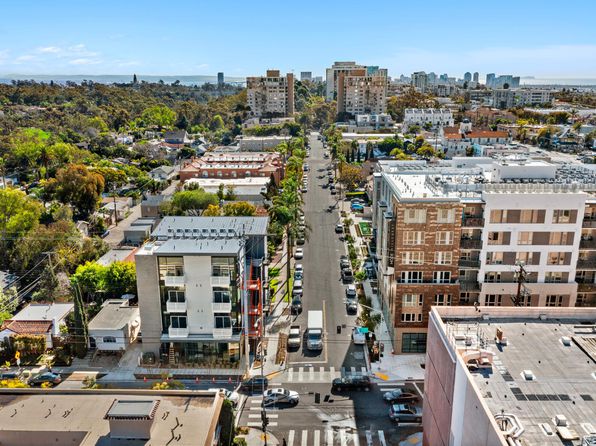California’s cities contain a significant amount of land used for commercial purposes, and in many cases tight local land use constraints prevent such land from being converted into housing. As several prominent downtowns with a large concentration of exclusively commercial uses, most notably San Francisco and Los Angeles, have emptied during the global pandemic, policymakers and urban planners are beginning to rethink what makes a successful, resilient city. In fact, many urban neighborhoods just outside of city centers with a livable mix of commercial and residential uses are still thriving, as residents seek walkable, mixed-use environments where they can live, work, and play, as opposed to the 20th century form of cities that strictly delineates employment zones from other activities.
Statewide zoning reform is beginning to take shape as a result. On September 29, 2022, Governor Gavin Newsom signed into law AB 2011, the Affordable Housing and High Road Jobs Act of 2022. The new law becomes effective on July 1, 2023. AB 2011 provides streamlined, by-right ministerial approval of certain affordable and mixed-income housing projects in commercial zones within urbanized areas. If a proposed housing project complies with the legislation, local jurisdictions are barred from mandating both a separate discretionary approval and review under CEQA.
To qualify for inclusion under AB 2011 a rental housing project must offer either 15% of its units as low-income affordable, 8% as very low-income affordable, or 5% as extremely low-income affordable. On the for-sale side, a project must offer either 15% of its units as low-income affordable or 30% as moderate-income. The legislation decrees that zoning guidelines are to match the zoning district most proximate to the site that allows for multifamily residential development. If no such zoning district exists, the applicable guidelines are to be the district that permits the greatest density in the city or county.
AB 2011 sets minimum density requirements for residential projects to discourage low-density or suburban housing types in these prime infill areas. In areas defined as ‘metropolitan,’ the minimum residential density is the greater of 80 units/acre for sites within one-half mile of a major transit stop, 60 units/acre for sites that are larger than one acre and located along a commercial thoroughfare of at least 100 feet wide, and 30 units/acre for sites smaller than one acre. Height limits are also set according to the size/location of the site and its proximity to major transit stops.
Despite the program’s appealing provisions, several ancillary requirements of the legislation may add cost and complexity for interested developers and property owners.
In exchange for the zoning allowances the bill requires developers to adhere to various prevailing wage and training standards. All projects are required to provide prevailing wage to workers, while projects of 50+ units will require provision of health benefits to workers. All contractors associated with the project must either participate in an apprenticeship program that has been approved by the state or utilize workers that have graduated from such a program. While the goal of this provision, to grow the middle-class workforce, is admirable, the increased costs and reporting associated with these requirements may be prohibitive in an already high-cost environment.
Academic experts and policymakers expect AB 2011 to be a game-changer for the state’s housing efforts. Commercially zoned land is often located along important thoroughfares or in dense city centers and downtowns, and commercial parcels tend to be larger in size than residential parcels. These attributes are highly desirable for residential developers looking for sites to build well-located housing at scale. AB 2011 aims to chip away at California’s housing crisis by freeing up large parcels in prime locations and bringing a healthier and more balanced mix of uses to urbanized areas across the state.
